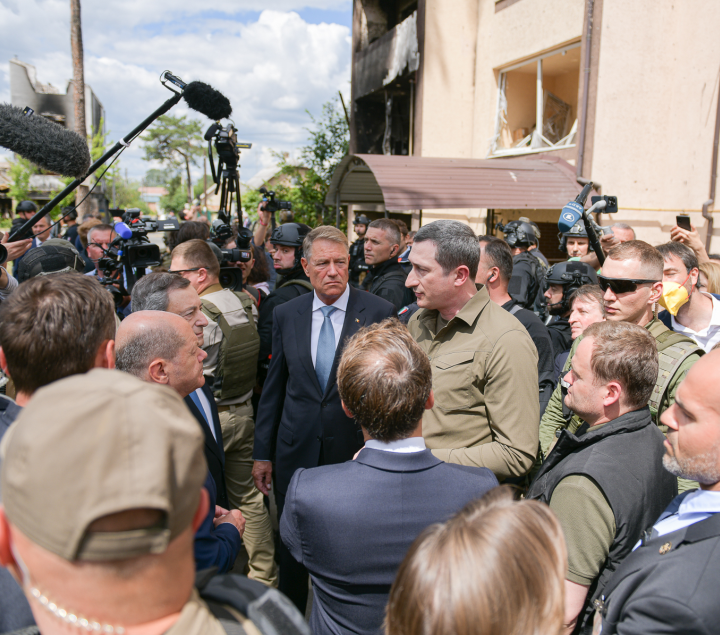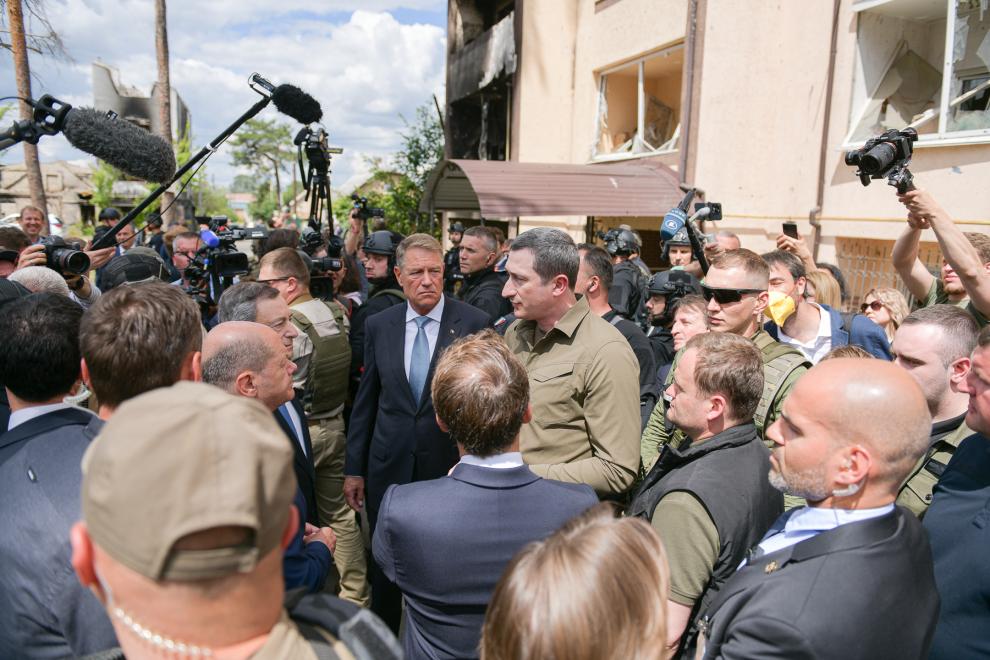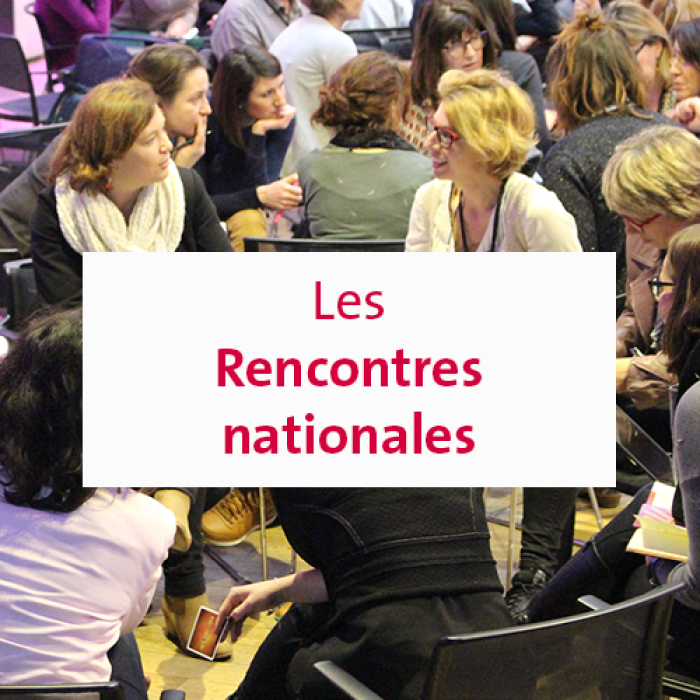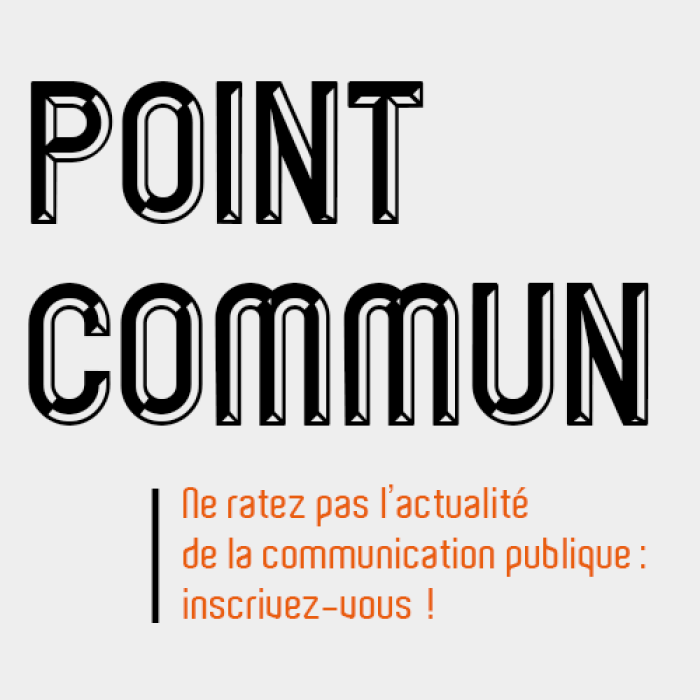
Public communication in Romania : between crisis and citizen dialogue
As his country entered tough news due to the neighboring conflict in Ukraine, Commonality interviewed George Surugiu, Senior communication advisor at the General secretariat of the government, Romania. He answered our questions about his profession, the approach in Bucharest to citizen issues and the current crisis.
Cover photo : issued from Romanian presidency. 16th of June 2022, European representatives visited Ukraine : French president Macron as President of the council of the European union 2022, Romanian president Klaus Lohannis, German chancellor Olaf Scholz and Italian president of the Council of ministers Mario Draghi
Commonality : As a senior communication advisor for the General secretariat of the Romanian Government, do you think that Romanian's government communication strategy has managed, so far, to increase social trust among citizens ?
George Surugiu : The main goal is to inform citizens about the government's activities and initiatives, and also to bring public policies and proposals of new legislation into public debates in order to better the life of citizens. The trust of the public should be a result of the transparency and the openness of the government. As a civil servant of the General Secretariat of Romania's Government, I am part of the continuing efforts to develop the Government's public communication. I am very happy that I had the opportunity to be at the seminar in Toulouse organized by Cap'Com and the Club of Venice in February 2022 to present the most recent project that we were involved in. This project is funded by the European Union through the implementation of the EU's Social fund in the period from 2014 to 2020. The project is implemented in partnership with a major national think-tank specialized in public communication. The main purpose of the project is to draft the strategy for the management of Romanian Government’s communication in order to strengthen its capacity to deal with day-by-day workload and also with crisis situations. Another goal is to provide professional training for no less than 300 government's communication officers at both local (authorities in Romania's counties) and national level. Last but not least, we are proposing the introduction of new professions in the Romanian national list of occupations, such as the professions of manager and expert in governmental public communication. As a result, civil servants will be more proficient, motivated and actively involved in such activities.
The main goal, however, is to inform citizens about the government's activities, and also to bring public policies and initiatives into public debates.
Commonality : As you've just mentioned, the main goal of the government's communication strategy is to inform citizens. So do you think that the Romanian Government has achieved this goal, mostly during the Covid-19 pandemic ?
George Surugiu : Certainly, the Covid-19 pandemic was very challenging. There were lots of efforts in bringing correct and coherent information for citizens, particularly regarding the vaccination campaign. So far, the results are still to be improved and surely they will gradually get better. However, the public communication was hindered by the fake news and the conspiracy theories that are abundant on social networks. We are hoping that the correct information, based on scientific data, will gradually convince more and more citizens that the vaccination campaign is a safe and recommendable action to be taken in the next months until the end of the pandemic. Lots of social media are, involuntarily, being used as distribution for conspiracy theories and for disinformation campaigns. This has a big impact on the Romanian public sphere. But in terms of communication, the Romanian Government is now doing its best to compensate for this pressure on the public and to offer correct information about the vaccination.
There were lots of efforts in bringing correct and coherent information for citizens, particularly regarding the vaccination campaign.
Commonality : One of the main ways to broadcast correct information is through general media. In regards to the media content, you attache an importance to the role of positive media content in a democratic society. So what is the situation in Romania right now ?
George Surugiu : I think we need to have more good news about the European Union and its member states' successes in addressing various problems and challenges that citizens are confronting. One example was the huge operation that EU has managed to implement by contracting and purchasing Covid-19 vaccines for member countries. This needs more media coverage because this is the kind of information that will convince citizens that the EU's integration project is successful and brings clear benefits for them. Also, citizens need an alternative to the fake news campaign and the best alternative is the truth about how the EU is using its great resources in managing crises and problems.
What is the communication strategies for the Romanian government during the war in Ukraine ?
From the beginning of the conflict in Ukraine, the Romanian government tried to ensure a coherent public communication for the benefit of both its citizens and the thousands of Ukrainian refugees who entered the country. Therefore, since the very first day of the Russian invasion in Ukraine, Prime Minister Nicolae Ciuca has openly condemned the aggression, while demanding consistent sanctions against Moscow from the EU and international community. The head of the government has insisted that Romania is fully committed to offer assistance to our neighbours in need and supports the independence and sovereignty of Ukraine, while stressing the importance of EU and Nato solidarity and unity in the context of the crisis.

Regarding the communication efforts aimed towards the Ukrainian refugees arriving into Romania, the government is aware of the need to coordinate the help of civil society, non-governmental organizations and private sector actors . Ukrainians coming into Romania need not only food, clothing and shelter, but also information about their status and rights, and about how they can obtain the social support required for going on with their lives. Such information is provided by governmental workers, representatives of local administration bodies, NGOs and their volunteers. Moreover, Ukrainians coming into Romania are informed, in their own language, by special free phone lines and online platforms or by posters and flyers distributed in camps and shelters, about the rights granted by the international legislation protecting refugees. They are also explained various legal issues, e.g. how they can work legally in Romania, obtain medical assistance or enroll their kids in Romanian schools and kindergartens.
Last but not least, Romanian authorities have decided to block or shutdown several internet sources identified as propagating fake news and disinformation about the situation in Ukraine. For the same reason, and in line with measures decided at EU level, all cable TV distributors in Romania were asked to disable "Russia Today" channel. And in order to help the refugees to stay in touch with the situation in their country, the Romanian public TV channel has started to re-broadcast programs from the Ukrainian national TV station and other private broadcasters from Ukraine. Although this is an unprecedented action in the history of the Romanian media. It will surely contribute in making Ukrainian refugees feel like home, in Romania.




